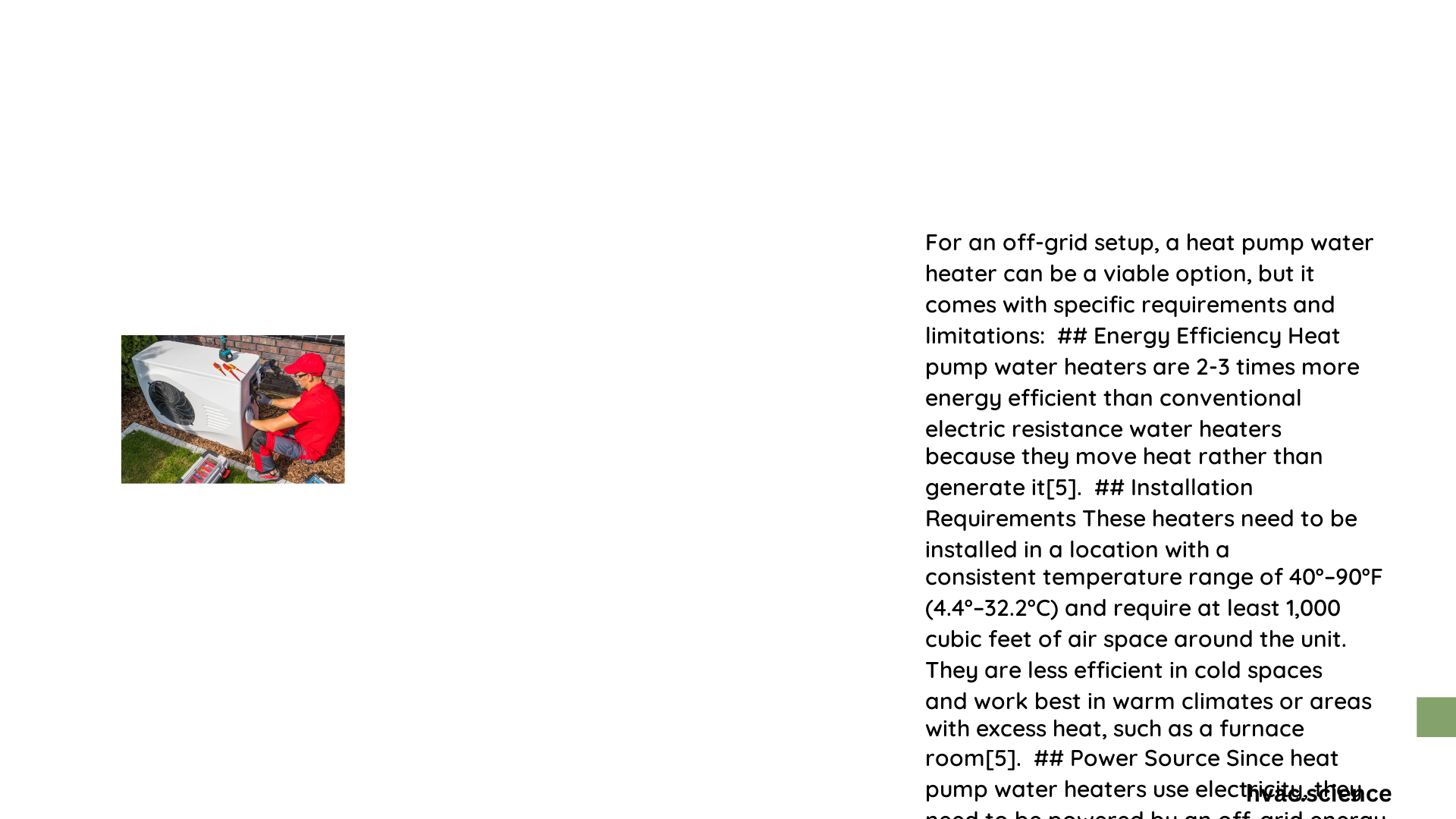Off-grid living demands innovative water heating solutions that maximize energy efficiency and minimize resource consumption. Heat pump water heaters represent a transformative technology for remote locations, offering sustainable water heating capabilities by extracting thermal energy from ambient air, ground, or surrounding environment, making them ideal for self-sufficient residential and commercial applications seeking reliable, low-energy water heating systems.
What Makes Heat Pump Water Heaters Unique for Off-Grid Applications?
Heat pump water heaters (HPWHs) are revolutionary systems designed to extract thermal energy from surrounding environments, providing an efficient alternative to traditional water heating methods. Unlike conventional electric or gas water heaters, these systems leverage advanced thermodynamic principles to transfer heat rather than generate it directly.
How Do Heat Pump Water Heaters Function?
HPWHs operate on a fundamental principle similar to refrigeration technology:
- Heat Absorption
- Extracts thermal energy from ambient air
- Uses refrigerant to capture surrounding heat
-
Works effectively in temperatures ranging from 40°F to 90°F
-
Heat Transfer
- Compresses captured thermal energy
- Transfers heat to water storage tank
- Increases water temperature efficiently
What Are the Key Advantages for Off-Grid Environments?
| Advantage | Description | Performance Impact |
|---|---|---|
| Energy Efficiency | Consumes 60% less electricity | Reduces overall energy demand |
| Low Operating Costs | Minimal maintenance requirements | Decreases long-term expenses |
| Environmental Sustainability | Zero direct carbon emissions | Supports ecological preservation |
What Technical Specifications Matter for Off-Grid Installations?
Performance Metrics
- Coefficient of Performance (COP): 3:1 to 4:1
- Annual Energy Savings: Approximately 3,000 kWh
- Temperature Range: Functional between 40°F-90°F
- Water Heating Capacity: 50-80 gallons
How to Select the Right Heat Pump Water Heater?
Crucial Selection Criteria:
– Assess available ambient temperature
– Evaluate installation space requirements
– Calculate household hot water demand
– Consider local climate conditions
– Review manufacturer’s efficiency ratings
What Installation Considerations Exist?
Pre-Installation Checklist:
– Verify electrical infrastructure
– Ensure adequate ventilation
– Prepare condensate drainage system
– Obtain necessary permits
– Plan professional installation
What Maintenance Strategies Optimize Performance?
Recommended Maintenance Schedule:
– Monthly filter cleaning
– Biannual system inspection
– Annual professional evaluation
– Regular condensate drain checks
– Monitor refrigerant levels
What Cost Implications Exist?
Financial Breakdown:
– Initial Investment: $1,500 – $3,000
– Installation Costs: $500 – $2,000
– Annual Maintenance: $100 – $300
– Estimated Energy Savings: $459/year
What Challenges Might Off-Grid Users Face?
Potential Limitations:
– Limited functionality in extreme temperatures
– Dependency on electrical infrastructure
– Higher upfront investment
– Potential performance variations
Conclusion

Heat pump water heaters represent a sophisticated solution for off-grid water heating, combining technological innovation with sustainable design principles. By understanding their operational mechanics, advantages, and implementation strategies, users can make informed decisions about integrating these systems into their self-sufficient energy ecosystems.
